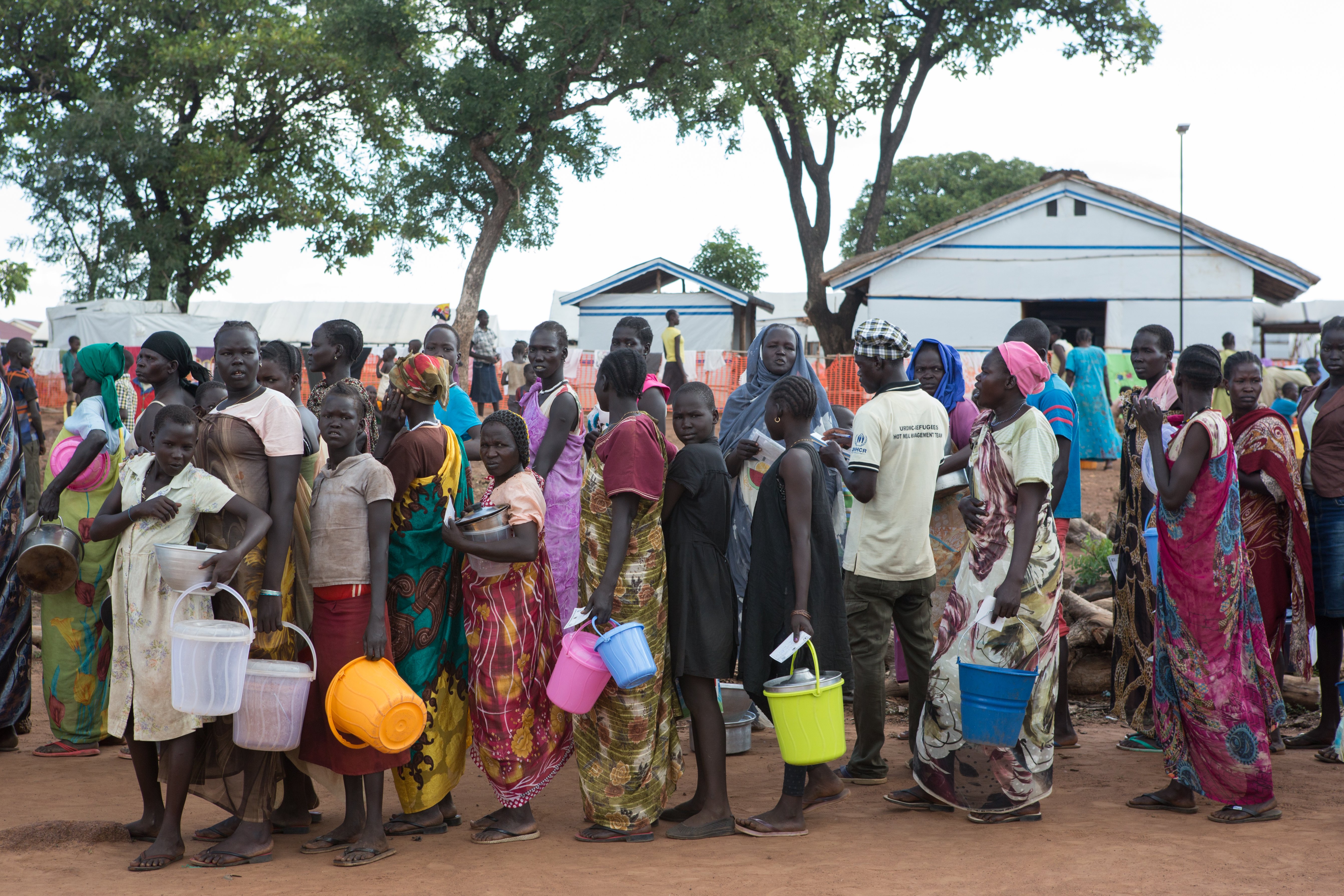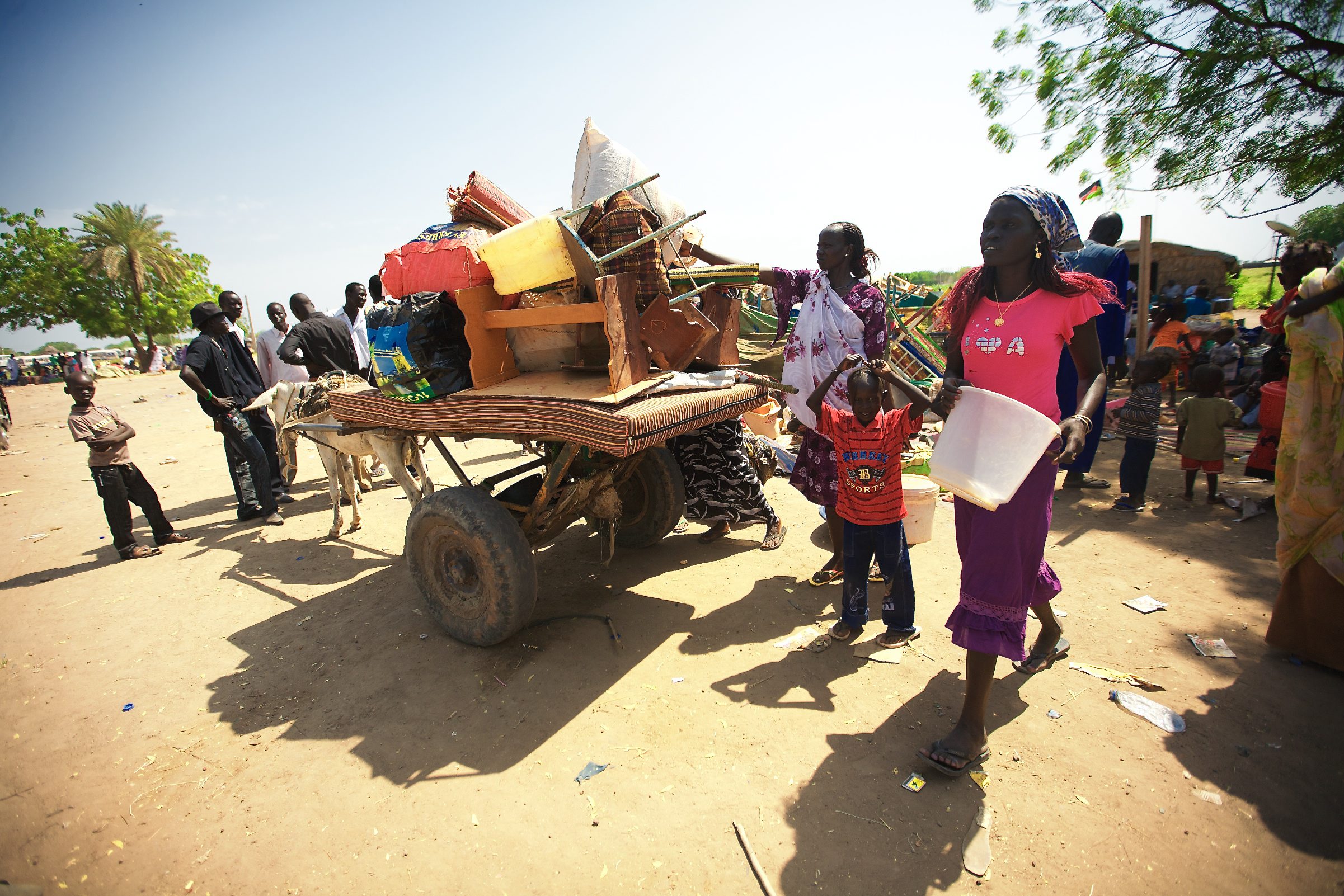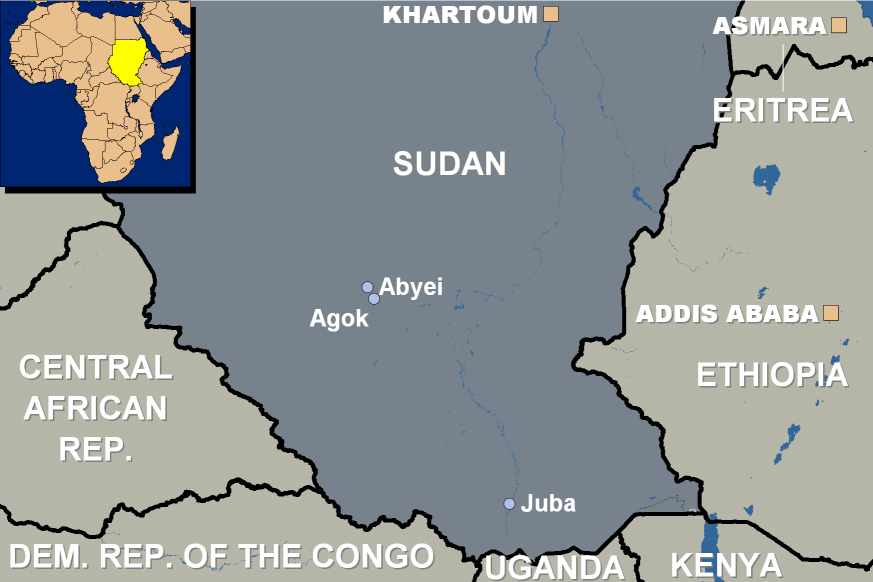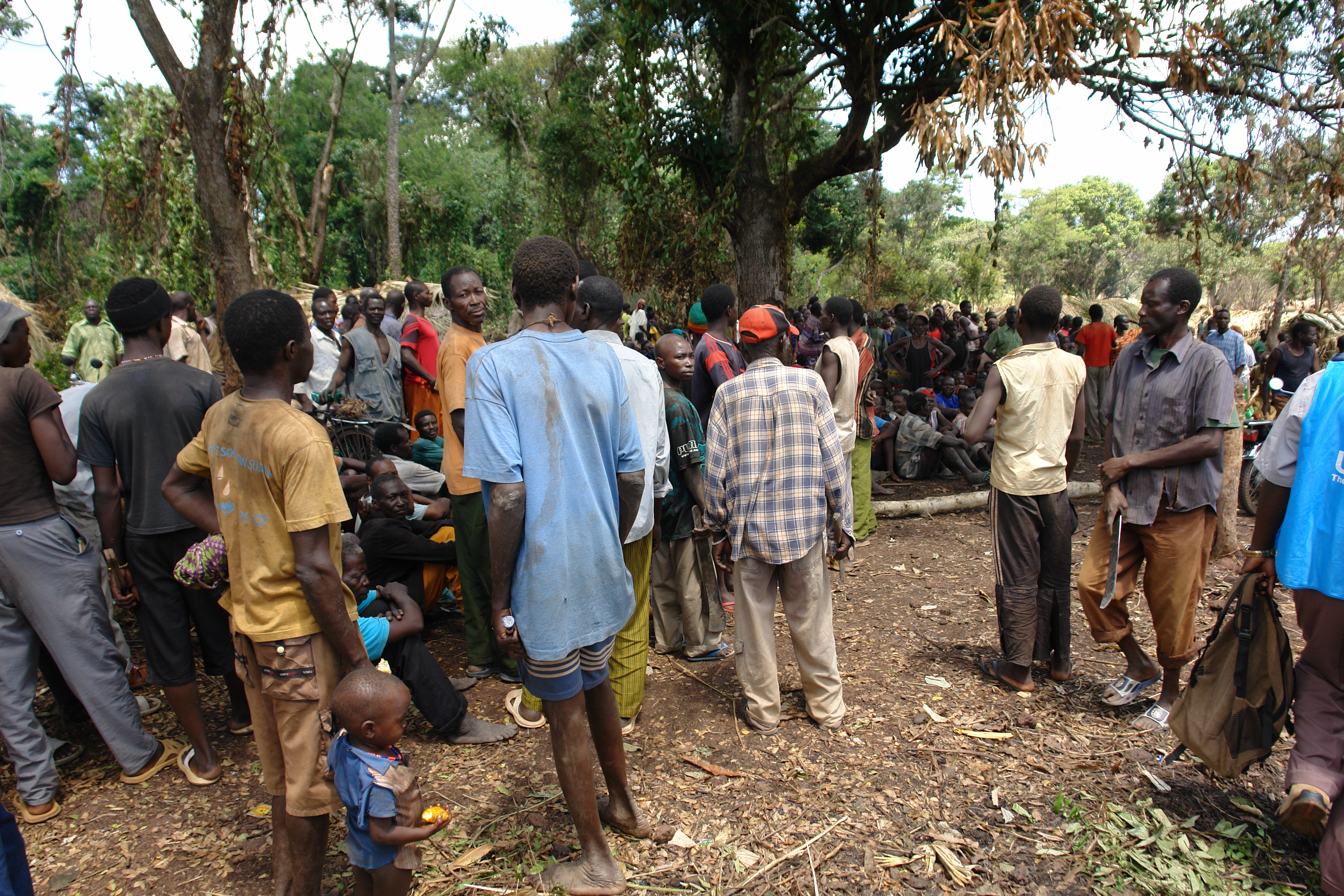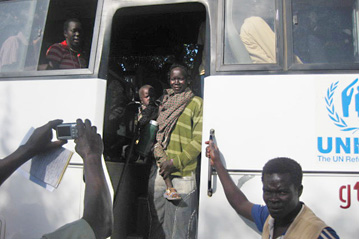South Sudan: Returns set to restart from Ethiopia and CAR
South Sudan: Returns set to restart from Ethiopia and CAR
The voluntary return of Sudanese refugees to south Sudan is set to gather new momentum this week with the scheduled re-launch of return convoys from Ethiopia starting tomorrow - Wednesday, and from Central African Republic (CAR) on Saturday. With the resumption of convoys from the two countries, we expect to assist the return of nearly 20,000 Sudanese refugees from both countries over the next six months. An estimated 11,000 Sudanese refugees are expected to return from Ethiopia and 8,000 to return from CAR.
Refugee return airlifts from the CAR were suspended in April this year following the closure of the border between CAR and Sudan. The government of CAR has now agreed to opening of the border but only for the purposes of repatriation of Sudanese refugees. In Ethiopia, we were forced to suspend the operation in May when the rainy season made the roads impassable.
In Ethiopia, a convoy of 10 buses and five trucks on Wednesday is expected to transport 500 refugees on the four-day journey from Bonga refugee camp in eastern Ethiopia to their villages in Nyille and Chali-El-Fiel in southern Sudan's Blue Nile State. Returnees will spend three nights in way-stations set up inside Ethiopia before crossing the border at Kurmuk on the fourth day. We plan to organize four convoys of 500 returnees each from Bonga camp before the end of the year.
Tomorrow's convoy is expected to take home refugees who had previously been declared medically unfit to travel. Many have now recovered and have received medical authorization to make the long journey home.
Before leaving Bonga, a camp of 17,000 Sudanese refugees, the returnees will receive a reintegration package consisting of blankets, jerry cans, sleeping mats, a water filter and a sanitary kit for girls and women. To reduce the amount of domestic supplies carried by the refugees from Bonga to the border, we have stockpiled in Kurmuk additional supplies of soap, plastic sheeting, mosquito nets, plastic buckets and kitchen utensils which will be distributed to the returnees before they cross the border into south Sudan. Upon arrival in Sudan, a reintegration package comprising three-months of food, seeds and agricultural tools will be provided by the World Food Programme and the Food and Agriculture Organisation (FAO).
In the CAR, we expect to restart the return operation this Saturday with the airlift of a total of 150 Sudanese refugees - three rotations carrying 50 people each - from Mboki camp in south-western CAR to Tambura in Western Equatoria region of south Sudan. We plan to organise three flights each week to repatriate most of the 8,000 of the 10,000 refugees in Mboki camp who have expressed an interest in returning home.
In the meantime, repatriation movements which resumed from Kakuma refugee camp in north-west Kenya last month are continuing. Since November 2006, we have been able to assist the return by air of 255 refugees to Bentiu county in southern Sudan's Unity State. Next week, we will begin the airlift of some 400 refugees in Kakuma who want to return to Bor county in Jonglei State. Plans to take some 300 refugees back to their homes in Malakal in the Upper Nile region have been put on hold due to a flare-up of fighting in the area at the end of last month.
By 5 December 2006, a total of 91,588 Sudanese refugees had returned home from neighbouring countries. Of this number, 17,869 returned home with UNHCR assistance. An estimated 350,000 Sudanese refugees remain in exile mainly in Kenya, Uganda, Ethiopia, Central African Republic and the Democratic Republic of Congo.

